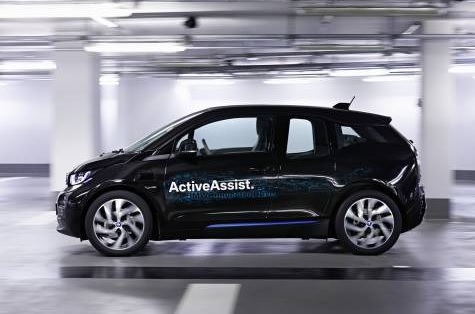
During the first week in January, we’ll be hearing a lot of news out of Las Vegas about the latest and greatest consumer electronics hitting the market. Perhaps two of the most-watched industries at CES are automotive and wearables. BMW is set to introduce a car that combines the best of those worlds, showcasing the BMW i3, a vehicle that can park itself via smartwatch.
Integrating laser sensors that scan the surrounding area, the car can initiate its “Remote Valet Parking Assistant” via an app to essentially park itself. Developed by a team at BMW focused solely on automotive innovations, BMW claims that the i3 offers “360-degree collision avoidance and fully-automated parking.”
As a shining example of the Internet of Things in the here and now, these laser sensors work in conjunction with a digital site plan of the environment where the car is located to ensure the safe and accurate parking of the vehicle.
Interestingly, this self-park technique completely avoids reliance on GPS technology, which can be a major concern when attempting to park within a structure such as a parking garage, where GPS signals can be difficult to locate.
According to the press release BMW issued last week, “If a driver uses a smartwatch to activate the fully-automated Remote Valet Parking Assistant, the system will steer the vehicle independently through the levels [of a parking garage], while the driver has already got out of the car and is on his way to a business appointment. The fully automated Remote Valet Parking Assistant recognizes the structural features of the [parking garage] and equally reliably steers round any obstacles that appear unexpectedly – such as incorrectly parked vehicles.”
As with all of BMW’s previously released driver assistance systems, a driver can override the BMW i3 parking app at any time. Many drivers are impressed by the system, though, which not only boosts convenience, but also improves safety as it removes the dependence on the driver to assess roadway or parking conditions in instances of reduced visibility or driver health emergencies.
This is not BMW’s first time to debut automated driving technology at CES. In fact, the company also tested a self-driving vehicle at last year’s show. And they are not the only players in this space, either. Google and Tesla are also developing cars with autopilot features.
Advertisement
Learn more about Electronic Products Magazine





